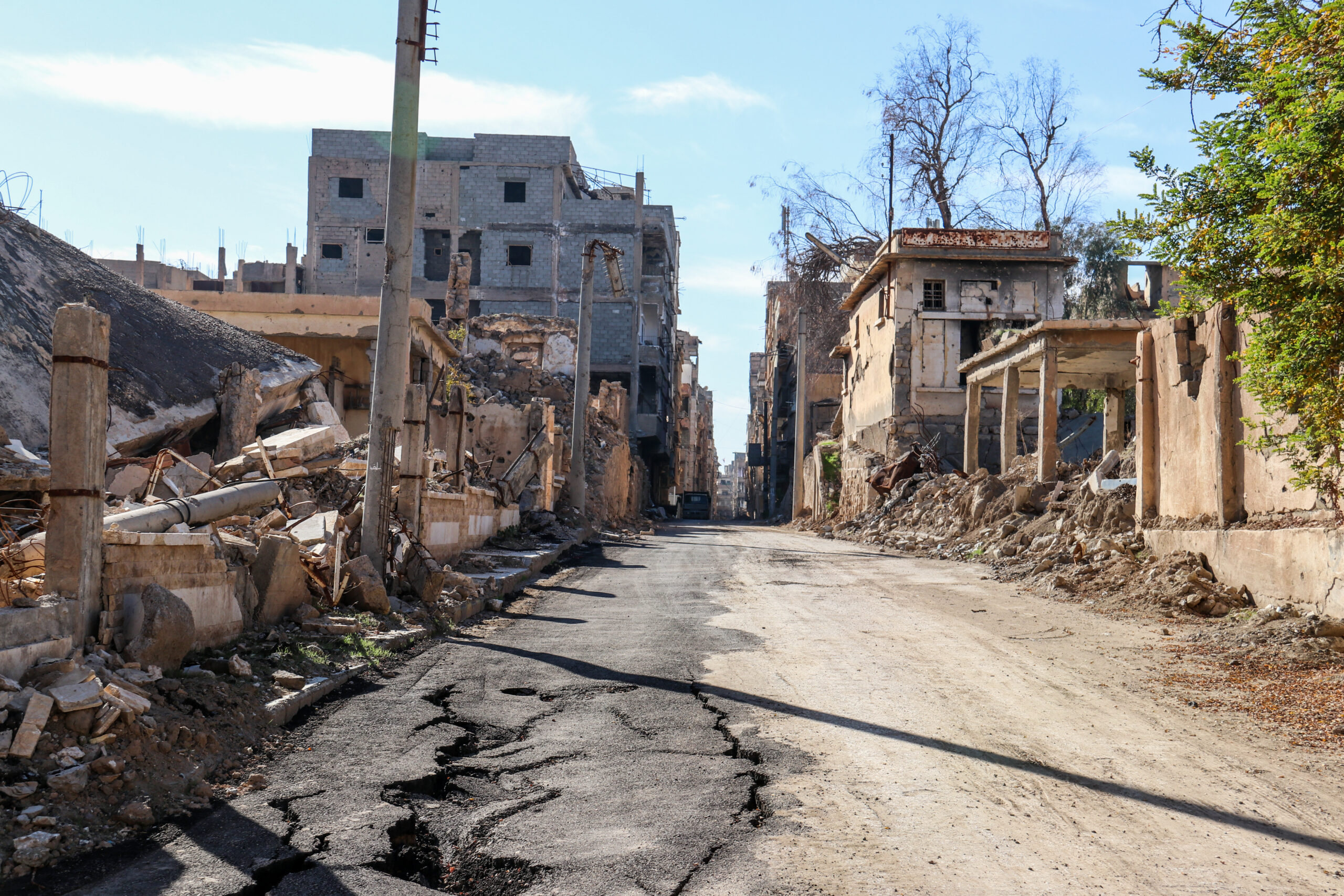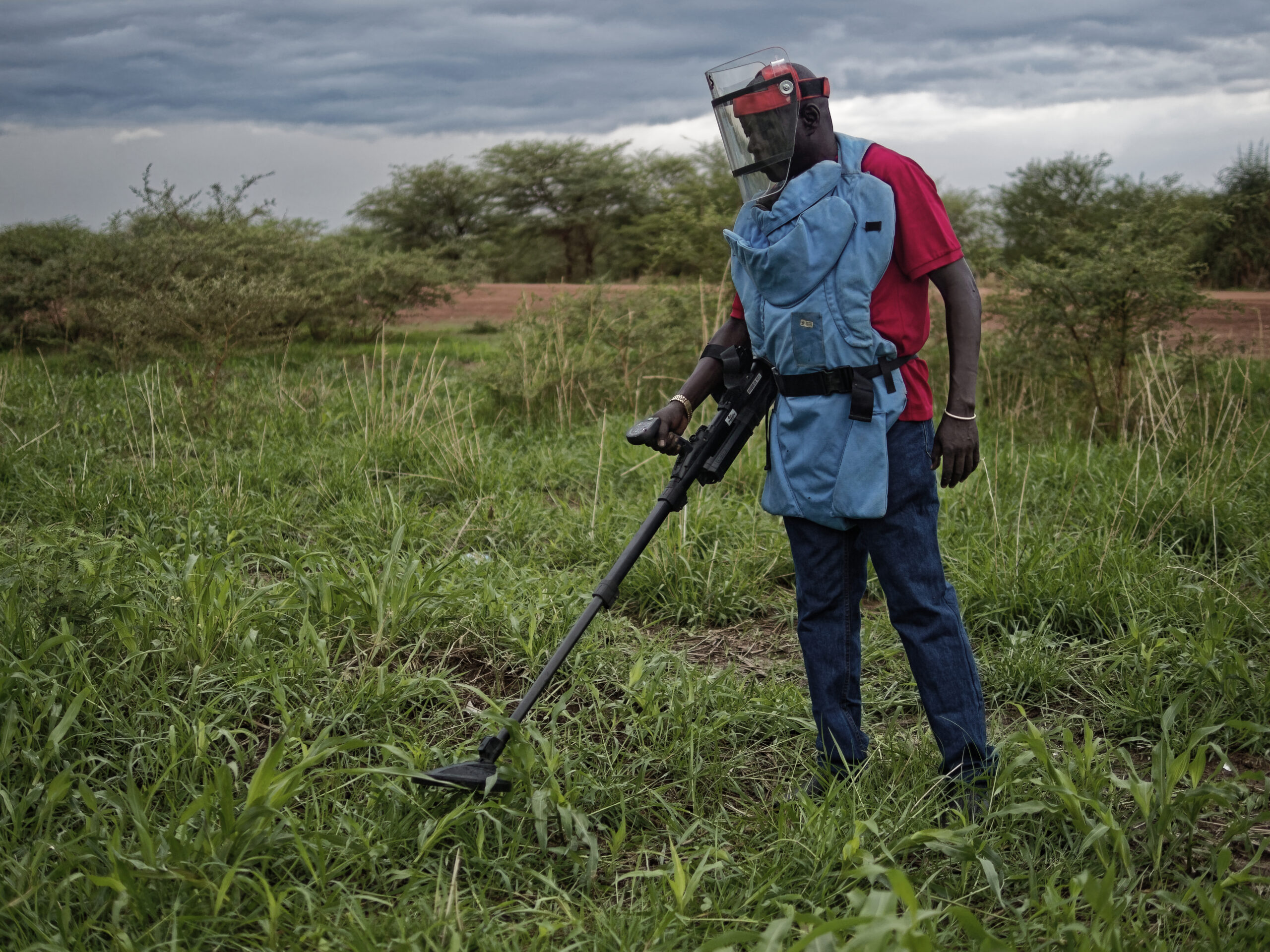Meeting the 2030 Agenda for Sustainable Development seems like an impossible task when the world is only on track to achieve 17% of the Sustainable Development Goal (SDG) targets. One major challenge that remains an obstacle is conflict. Both growing and recurring conflict undermines progress in all development areas.
The number of global conflicts has doubled over the past five years, leading to more deaths, violence, and displacement. Some nations, like Sudan and Myanmar, are in prolonged civil wars, while others, such as Ukraine and the DRC, fight external aggressors. Others, like Gaza and Syria, have only recently entered a post-conflict state, where ceasefires or regime changes have stopped the immediate, ongoing violence.
SDG 16 (Peace, justice and strong institutions) is a pivotal goal that, if met, can help countries break out of the vicious cycle of conflict and enable progress in all areas of the 2030 Agenda. Achieving this goal means building effective, accountable, and inclusive institutions at all levels and aiming to reduce violence, strengthen the rule of law, and combat corruption.
As specialists operating in challenging environments, including conflict-affected and post-conflict countries, the Chelsea Group and its companies are deeply invested in the peacebuilding efforts of these regions. We strive to drive positive change and contribute where we can to sustainable, lasting peace.
This blog explores what it takes to build sustainable peace and how the private sector, along with other stakeholders, can contribute to peacebuilding efforts.

Over 140,000 buildings were destroyed in Syria during the civil war. With the fall of the Assad regime in December 2024, Syria moving into a post-conflict state.
What is peacebuilding
Achieving lasting peace in conflict-affected areas requires the slow and painstaking rebuilding of conditions that prevent conflict from breaking out in the first place.
Peacebuilding – the process of addressing the root cause of conflict to prevent further or future conflict – comes after peacemaking (reaching a peace agreement) and overlaps with peacekeeping (enforcing the terms of a peace agreement). It requires strong institutions that can resolve current and future clashes peacefully.
But, setting up strong institutions is exceptionally difficult. While post-conflict countries can pursue peacebuilding alone, external support is often crucial. Neutral partners like humanitarian agencies and private companies can help ensure lasting peace rather than a return to conflict by providing support to local stakeholders building peace.
This is where Chelsea Group companies, such as CTG, Hart and Chelsea Water, can step in and contribute to peacebuilding efforts.
The five pillars of peacebuilding
While each post-conflict state will have unique needs, research from the German Development Institute indicates five general areas where collaboration between external bodies and local stakeholders can help build a lasting peace.
1. Peacekeeping
This is the deployment of military troops that focus on enforcing peace agreements. By preventing violence and defending civilians, peacekeeping forces can help create space for recovery and rebuilding.
2. Nonmilitary security
One of the most important outcomes of peacebuilding is establishing the legitimacy of the new regime or state, especially in terms of its monopoly on violence. That means violence must be demilitarised and only used by the state to enforce the law.
Private security companies (PSCs) – like the Chelsea Group’s founding company Hart – play a key role in early nonmilitary security. They may be contracted to help reform police, demilitarise conflict zones, demine areas and protect infrastructure.
Hart has been supporting clients, including governments, international organisations and commercial operations, with integrated security solutions since 1999.

Nonmilitary security is also often contracted for demining and demilitarisation programmes.
3. Politics and governance
A post-conflict state needs to create opportunities for meaningful and peaceful political engagement. Citizens must have access to functioning public institutions to settle disputes and grievances without violence.
External assistance for politics and governance often takes the form of building government capacity to handle disputes fairly and international election monitoring, which can help build trust in the outcome of an election.
CTG provides vital support to these organisations, with services including comprehensive staffing solutions for humanitarian and development projects, election monitoring procurement and logistics, and project management. CTG puts the best people on the ground to assist with peacebuilding – with particular focus on the mobilisation of local staff.
4. Socioeconomic development
After a conflict, social and economic institutions also need to be rebuilt alongside infrastructure and basic services. Improved living conditions and economic opportunities give citizens a stake in peace, which can help ease grievances and make a return to violence less likely. External private sector organisations can provide crucial jobs and help boost a post-conflict economy.
Chelsea Water, for example, delivers reliable water purification solutions designed to be efficient in challenging environments, including post-conflict states. Access to clean drinking water is critical for further socioeconomic development and enabling communities to rebuild.
5. Societal conflict transformation
Mending the social fabric of a post-conflict society requires accountability for atrocities and a sense of justice being served. Reconciliatory processes, such as truth commissions, independent investigations and mediation, can bring closure to those affected by the conflict and help rebuild relationships after violence.
Comprehensive peacebuilding that addresses the five pillars of peacebuilding is most effective in post-conflict societies. For example, in Liberia, a mix of UN peacekeeping, international aid, infrastructure development, and political reforms helped stabilise the country after civil war. This approach enabled Liberians to build strong institutions that have been instrumental in keeping the peace, with Liberia marking 20 years of stability in 2023.
Partnerships for peace
International or external private sector organisations can support post-conflict countries by delivering services, building infrastructure, creating jobs, and providing private security and/or external oversight. However, external assistance can come with risks, such as exploitation, creating reliance on external aid and undermining local ownership of peacebuilding processes.
It is therefore essential for businesses operating in fragile and conflict-affected countries to consider how their operations will interact with local stakeholders to build strong institutions to promote sustainable peace. Private businesses have the resources and influence to promote sustainable development and social innovation – including greater gender equality, grass-roots initiatives and collaborative governance – that can contribute to a more resilient post-conflict society. They will, however, need to ensure that their business practices are conflict-sensitive so as not to exacerbate tensions or fuel further conflict.

While Liberia still faces challenges, 2017 saw its first successful democratic elections pass peacefully.
Building lasting peace
Private sector companies like those in The Chelsea Group, in partnership with humanitarian agencies and intergovernmental bodies, can play an important role in providing support for peacebuilding.
They are perfectly positioned as neutral parties that can use their resources to make social innovation, from sustainability to gender equality, part of the fabric of the communities they serve.
With our extensive experience in conflict-affected areas and ability to muster integrated solutions spanning security, staffing, logistics, life-support, crisis management, medical assistance and more, Chelsea Group is perfectly positioned to provide critical support in challenging environments.
Contact us today to learn more about our integrated, turnkey solutions.
